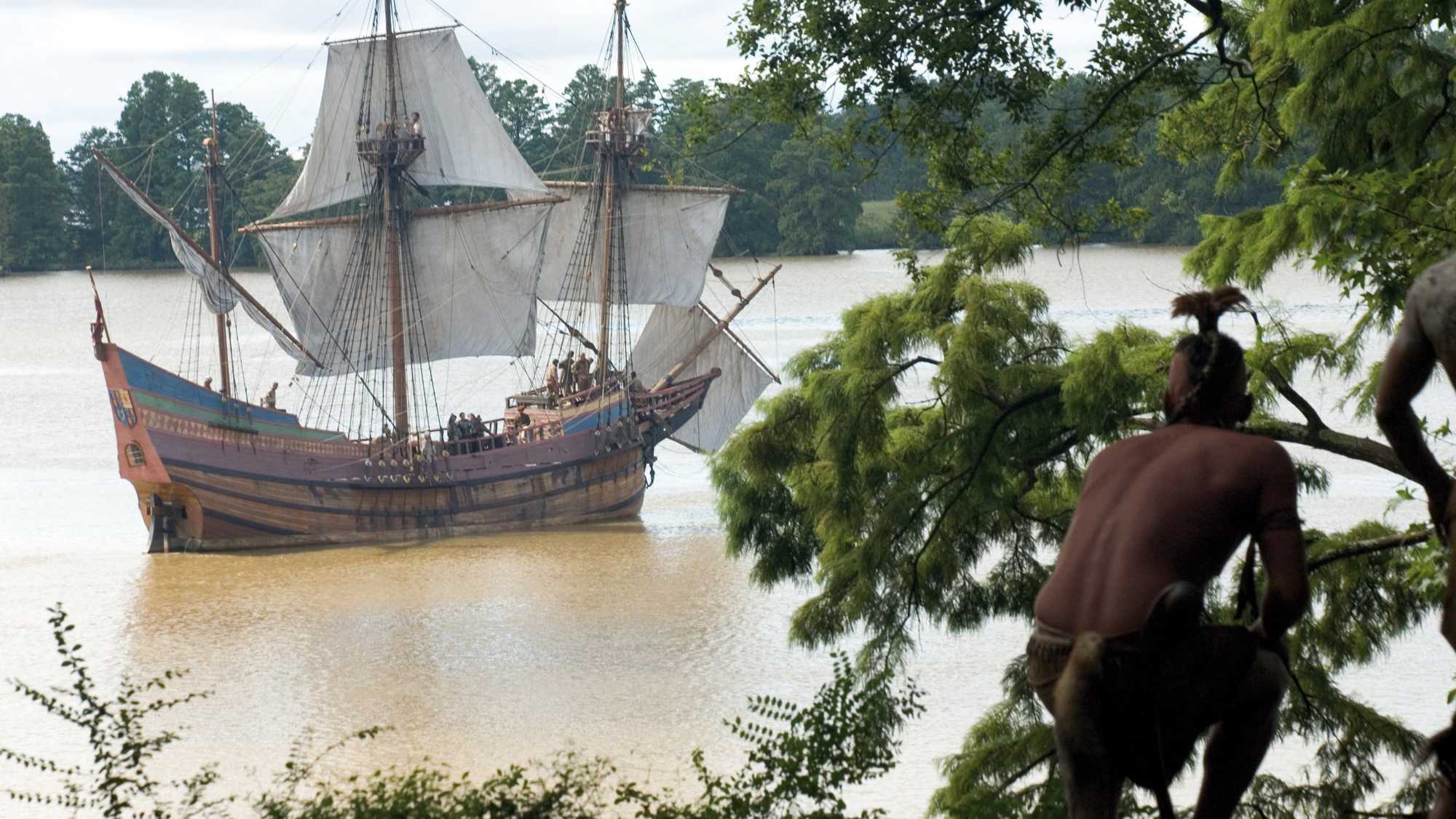In the great Terrence Malick’s (Badlands, The Thin Red Line) new film, the romance of Pocahontas and Captain John Smith (Colin Farrell) becomes a breathtaking ode to Eden before the fall. Ravishing.

The New World is a work of breathtaking imagination, less a movie than a mode of transport, and in every sense a masterpiece.
Screened as part of NZIFF 2006
The New World 2005
The great Terence Malick (Badlands, Days of Heaven, The Thin Red Line) delivers his fourth film in as many decades, a glorious assertion of the giant screen’s capacity to glorify the splendour of the natural world.
“Scene for radiant scene, shot for nary a wasted shot, The New World is the most artfully sculpted film in American cinema this year, for which the earth, wind and water are kneaded into an elemental tone poetry that shuns artificial lighting and contemporary allusion in favor of genuine, naturalistic mystique. Dreamily paced so there’s always room to breathe, react and admire, the film (like every Malick project) will astonish some and make others fidgety, but to stand in the latter camp is to complain that a glorious sunrise is boring – or worse – anticlimactic...It’s 1607, and a hundred haughty English settlers have just arrived by ship to upset the Native Americans’ ecosystem with their Jamestown colony startup. The mutinous Captain John Smith (Colin Farrell, quite fine as a sorrow-eyed swashbuckler) is let loose from his chains on his own recognizance, then put in charge after his peers return to the old world for supplies. After a skirmish with the Powhatan tribe deep within the Edenic woods, Smith soon finds himself living and learning with the ‘naturals’, while wooing the spirited teenage princess Pocahontas (fairly newcomer Q’orianka Kilcher, stitching this whole tapestry together). Her curious idealism and his dog-eared realism somehow meld into an impossible love that is pure romanticism, but whether the revisionism runs rampant here is for scholars to argue, not film buffs, as the point isn’t the history but the experience and emotional rush.” — Aaron Hillis, Premiere